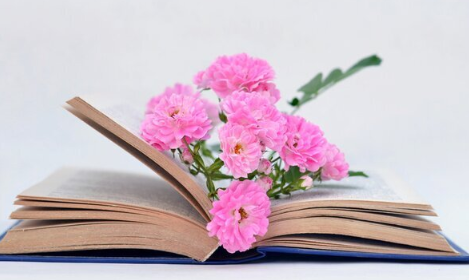A photo of the Rolling Stones was prominent in the papers yesterday, as they came together to celebrate the 50th anniversary of their first live performance in 1962. Their faces revealed that they had, to put it politely, aged somewhat. "You are old Father William" said the child in the nursery rhyme, and so is each one of us of course in due time. As far as evolution is concerned, that time comes when we've done all that is necessary, that's, passed on our genes to another generation. Then we can simply be left to die.
滚石乐队再聚首,庆祝1962年首度登台表演50周年。昨天报纸刊登了他们十分引人注目的照片。委婉地说,他们的相貌颇为成熟。“你已经老啦,威廉爸爸”,儿歌里这样唱到。毋庸置疑,我们每个人到了特定的时候都会如此。从进化的角度考虑,当我们已经完成了所有必尽之事——传宗接代后,时辰就到了。剩下的事情仅是苟且偷生罢了。
Again, as far as a society driven by economic activity is concerned that time comes when we're no longer productive and we're ready for recycling. So when we look at that aging face in a care home or in a hospital bed what is there to stop us getting really depressed? Do we have a vision of what it is to be a human person which will undergird and sustain the gentle care which the elderly need?

在如今这个被经济活动所驱使的社会里,年长的人失去了生产力,还要做好被回收利用的打算。因此,当我们看到护理中心或者医院病床上那一张张衰老的面容而唏嘘不已时,怎样才能走出消沉呢?给予老人温柔的呵护与扶持是做人之本。我们有这个认识吗?
Recently I was in Georgia, what I call proper Georgia, in the Caucasus, to speak in their European week, and one day I managed to get out into the country for a lovely walk with a friend. It came out that it was my birthday, and unknown to me, he rang up someone he knew in a nearby village. In this very simple home we were shown characteristic Georgian hospitality, and then the toasts began. First to me, then to my surprise to my parents, and then to everyone's parents, and then as they put it, "to our forebears to whom we owe so much." It was such a contrast to our normal highly individualistic way of thinking. Striking too was their moving sense of gratitude to the older generation. And yet even gratitude may not be enough. After all, sometimes people do feel pretty fed up with the old. We need something even more powerful, something to sustain our best attitudes, whether we're feeling appreciative or highly irritated, quite simply a sense of the value of the human person as such. We need it in our care homes, and we need it to be expressed in the political policies of the State towards the elderly.
最近我前往格鲁吉亚,在为期一周欧洲会议上发言。该地位于高加索山脉,是严格意义上的格鲁吉亚。某日,我得以从工作中抽身,和友人在乡间散步,十分惬意。结果那天是我的生日,朋友瞒着我给他邻村的朋友打了电话。在简朴的房间里,他们用典型的格鲁吉亚的待客方式款待了我们。随后我们举杯庆祝。首先是为我祝酒,让我吃惊的是,我们之后依次为我的父母和每个人的父母祝酒。他们还说“我们欠了先人太多。”这与我们平时高度的个人主义思考方式大相径庭。吸引我的还有他们对长辈们令人动容的感激之情。然而,仅仅感激是不够的。毕竟人们有时会对老人感到厌烦。我们需要更强有力的做人的价值观来支撑我们,使我们无论喜怒都以最好的态度来对待老人。护理中心需要这样的态度。国家在针对老人出台的政策中也应有所体现。
You don't need to be religious to have this attitude. But I do think that a Christian understanding of what it is to be a human person made in the image of God, with a spiritual orientation and destination, does give a dimension that suffuses, and reinforces our best human values and attitudes. As Gerard Manly Hopkins puts it in his poem on the resurrection: This Jack, joke, poor potsherd, patch, matchwood, immortal diamond, is immortal diamond. From one point of view we human beings are just a joke, a broken piece of pottery or potsherd, a used match, but essentially we are immortal diamonds.
这样的态度并不一定要通过宗教来获得。基督徒拥有精神归宿,认为上帝按照自己的样子创造了人类。而我认为他们的这种认识确实能加强人类最善的价值观和态度,并将其发扬光大。正如同杰拉尔德•曼利•霍普金斯描述复活的诗句:世间凡人,是一场笑谈,是破损的陶片,是破烂的补丁,是用过的火柴,是永恒的钻石。从某种角度上看,我们人类只是一场笑谈、一块破损的陶片、一根用过的火柴,但在本质上,我们是永恒的钻石。







